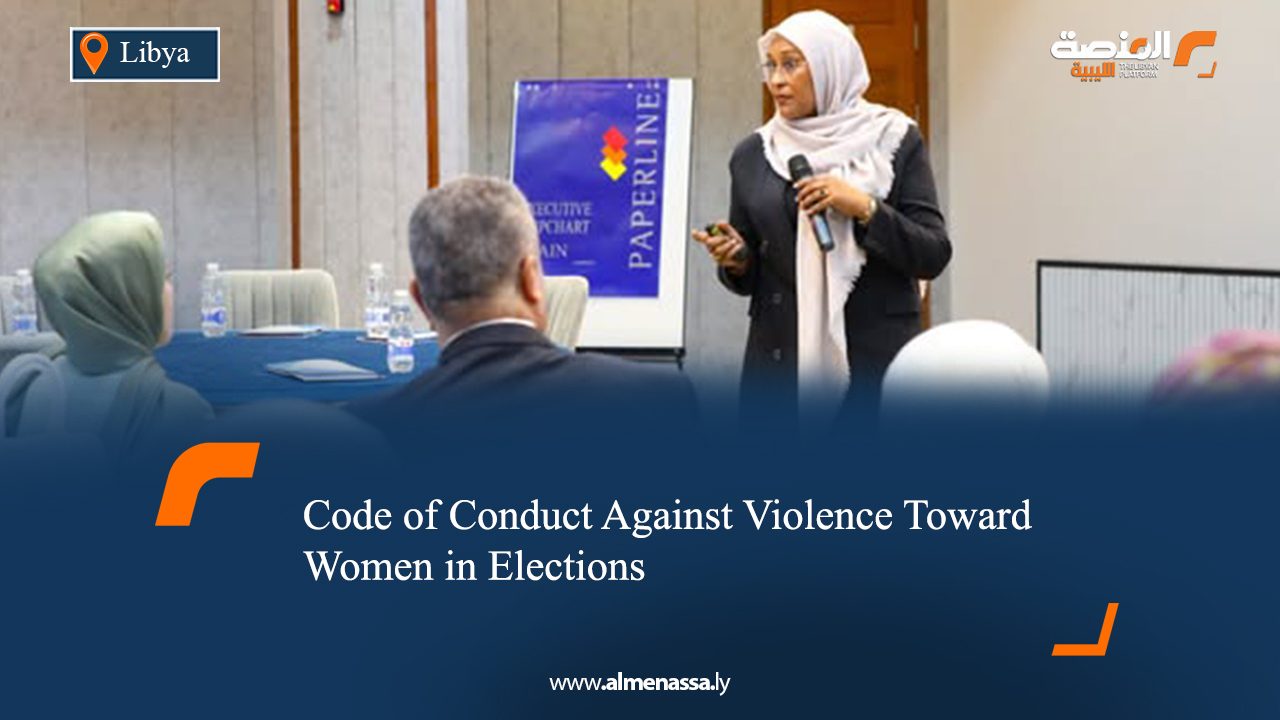The Women’s Support Unit at the National Electoral Commission, in partnership with UN Women and the United Nations Development Programme (UNDP), held a consultative session at the Commission’s Media Center to review and revise the Code of Conduct addressing violence against women in electoral processes. The session brought together a select group of legal and human rights experts.
Purpose and Stakeholder Roles
Commission board member Rabab Halab explained that the revision aims to strengthen coordination among electoral stakeholders and promote conduct that supports women’s participation. She outlined the code’s core principles, objectives, and anticipated outcomes, emphasizing the role of rights-based partners in refining and advancing the framework.
Halab also highlighted the key obstacles women face in political engagement, particularly electoral violence, which remains a major barrier to their participation.
Integrating Electoral Violence into Governance Tools
UNDP Women’s Empowerment Advisor Khadija Al-Bouaishi presented a briefing on the importance of incorporating electoral violence into codes of conduct. She stressed that inclusive electoral environments—ones that ensure genuine representation of women—are vital to the credibility of democratic processes.
Legislative Framework for Protection
Legal experts Gazia Shaiteer and Salah Al-Murtada, members of the drafting committee for the proposed law on protecting women from political and digital violence, shared insights into the bill’s provisions. They noted that the law offers a progressive framework, classifying political and online violence as distinct crimes requiring penalties and clear protection mechanisms.
Final Workshop and Recommendations
The session concluded with a workshop to develop actionable recommendations for updating the Code of Conduct. These focused on raising public awareness of women’s political rights and strengthening community partnerships to advocate for inclusive, non-discriminatory electoral practices and peaceful transitions of power


